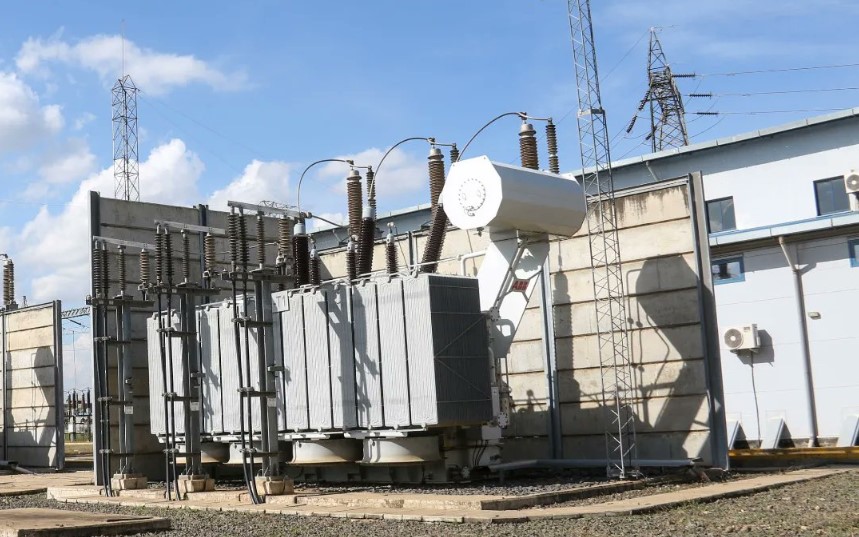How Kenya Power employees stole Sh207 million diesel meant for Turkana stations

Kenya Power MD Joseph Siror acknowledged that the company is investigating the fuel supplier over potential short deliveries.
Auditor-General Nancy Gathungu has revealed that Kenya Power employees, security guards, and fuel truck drivers colluded to steal over 1.1 million litres of diesel, valued at Sh207.65 million, which was intended for Turkana County’s off-grid power stations.
According to Gathungu's report on Kenya Power’s finances for the year ending June 2024, the theft took place over 26 months, from October 2021 to December 2023.
More To Read
- State agencies, counties owe Kenya Power Sh4.67 billion in unpaid bills - Auditor General
- Kenya Power ends manual applications, new connection requests exclusively via website
- Over 16,000 in the dark as Kenya Power struggles to procure essential meters, transformers
- 122 electrocuted as illegal connections, encroachment rise - Kenya Power
- County governments owe Kenya Power Sh5.67 billion in unpaid electricity bills - report
- Kenya Power rolls out digital meter reading system to boost billing accuracy
The power utility operates 15 primary off-grid stations countrywide, with a total installed capacity of 27.867 megawatts (MW), to serve remote areas not connected to the national grid.
“An internal investigation into the alleged theft of generation fuel at off-grid stations in Turkana County conducted during the year under review revealed that between October 2021 and December 2023, a total of 1,183,583 litres of diesel valued at Sh207,653,022 could not be accounted for,” Gathungu said in her latest annual report on Kenya Power.
"Several employees, security guards, and fuel tanker drivers were found culpable.”
Gathungu’s report recommended expanding the investigation to other counties with off-grid stations, noting that the same truck drivers who supplied diesel to Turkana also delivered to these other locations.
Broader investigation
However, Kenya Power has yet to conduct a broader investigation.
However, Kenya Power has sent a demand letter to the fuel supplier involved in the deliveries.
But while responding to inquiries from the Business Daily, Kenya Power Managing Director Joseph Siror said he was "not aware of any employee theft of that magnitude”.
He acknowledged that the company is investigating the fuel supplier over potential short deliveries.
“I am, however, aware of [an] investigation that is still ongoing on possible short deliveries by the fuel supplier. The matter is still active,” Siror said.
The revelation comes as a concern to Kenyans, as costs incurred in running off-grid power stations are passed on to consumers through higher power prices.
The Fuel Energy Charge, reviewed monthly by the Energy and Petroleum Regulatory Authority, includes these costs and is the second-largest fuel cost component after the consumption charge.
Notably, this incident is not isolated.
Kenya Power, with a workforce of 10,535 as of June 2024, has faced similar cases.
In a separate incident during the 2022/23 financial year, employees were implicated in irregularly issuing meters valued at Sh17.47 million in Central Rift Valley.
“However, management did not provide evidence of measures put in place to prevent similar occurrences as well as ascertaining prevalence of the scheme in other regions,” Gathungu said.
Overbilling consumers
The utility firm was again put in a spot for overbilling electricity consumers to recover higher fuel costs incurred during the 2022 financial year.
The Auditor General's report revealed a significant discrepancy between the fuel cost charges collected from consumers and the actual payments made to power producers.
According to the annual report for the year ending June 2023, Kenya Power collected Sh34 billion from consumers in fuel costs but only paid Sh28.09 billion to thermal power producers.
The fuel cost charge (FCC) allows consumers to reimburse power producers for the heavy fuel oil used in electricity generation. This charge fluctuates monthly based on the amount of thermal power added to the national grid.
In response to the Auditor General's findings, Kenya Power explained that the disparity stemmed from higher costs during the 2021-22 financial year, due to the difference between the calculated and applied fuel cost charge.
The company also noted that despite the higher costs, the rate applied to power bills was lower as the government implemented a 15 per cent discount on power tariffs.
Top Stories Today













































